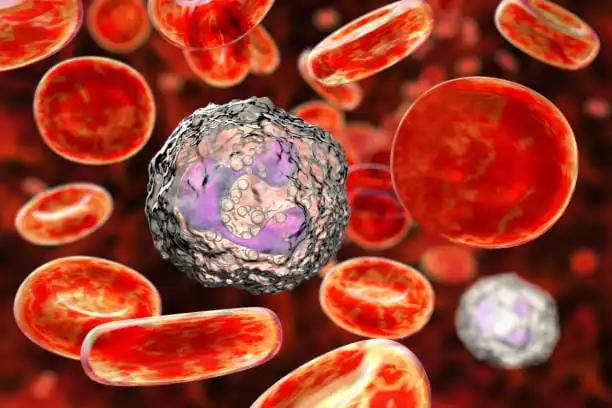KEY TAKEAWAYS
- The phase 3 ABCSG-18 trial (NCT00556374) evaluated the long-term effects of Denosumab on bone health, fractures, and survival in postmenopausal HR+ breast cancer patients on AI therapy.
- The trial enrolled 3,425 postmenopausal patients with early HR+ breast cancer who were randomly assigned to receive 60mg of Dmab or a placebo q6m.
- The trial demonstrated that adjuvant treatment with 60mg of Dmab every 6 months and AI therapy significantly improved DFS by 3.5% after 9 years.
- The long-term exploratory follow-up in the trial confirmed the previously reported effects of Dmab on DFS and BMFS.
- Adjuvant Denosumab 60mg every 6 months during AI therapy reduces treatment-induced fractures and improves DFS, BMFS, and OS in postmenopausal HR+ breast cancer patients.
In postmenopausal patients with hormone receptor-positive (HR+) breast cancer, using aromatase inhibitors (AI) as part of adjuvant endocrine therapy has been shown to impact bone health and increase the risk of fracture negatively. Denosumab (Dmab), an anti-RANK ligand, is an adjuvant therapy to reduce these adverse effects and potentially boost clinical efficacy. Researchers provided the final long-term results from the ABCSG-18 experiment (NCT00556374 on ClinicalTrials.gov). Between 2006 and 2013, researchers at 58 study locations randomly assigned 3,425 postmenopausal patients with early HR+ breast cancer on AI treatment to receive either Dmab 60 mg or placebo s.c. every 6 months (q6m). The primary goal was time to first clinical fracture, with disease-free survival (DFS), bone metastasis-free survival (BMFS), and overall survival (OS) as secondary endpoints. Long-term exploratory follow-up was also performed in ABCSG-18, in addition to the primary endpoint analyses that were previously reported. Stratified Cox models were used for the preliminary time-to-event studies. Treatment switching during the final open-label phase of Dmab was also accounted for, as was the use of any anti-resorptive drugs.
All patients had completed their randomly assigned double-blind treatment (Dmab 60mg s.c. q6m n = 1711; placebo s.c. q6m n = 1709) and were followed for a median of 8 years (Q1,3: 6, 9.6) in this last protocol-defined analysis. Dmab enhanced DFS compared to placebo by 3.5% (79.4% vs. 75.9%, respectively) after 9 years (309 vs. 368 DFS events, hazard ratio (HR) 0.83, 95% CI 0.71-0.97, P = 0.016). The DFS difference was confirmed when the effects of late cross-over and anti-resorptive drug use were censored (HR = 0.82, P = 0.010). The Dmab group had a 19% improvement in BMFS (HR 0.81, 95% CI 0.65-1.00, P= 0.047) and a 20% improvement in OS in the uncensored analysis (127 versus 158 OS occurrences, HR 0.80, 95% CI 0.64-1.01, P= 0.065) and a 26% improvement in OS after censoring (HR 0.74, 95% CI 0.58-0.94, P= 0.013). With 201 fractures in the Dmab group and 255 fractures in the placebo group over the long run, the previously documented significant reduction in clinical fractures was maintained even after adjustment for confounding factors. No additional toxicities were detected at this (low) bone-protective dose of adjuvant Dmab; no ONJ occurred. Taking 60 mg of adjuvant Dmab every 6 months while undergoing AI therapy is well tolerated and has been shown to minimize treatment-related clinical fractures significantly. This final, descriptive, long-term investigation of ABCSG-18 improves upon prior work in DFS, BMFS, and OS. Postmenopausal women with HR+ breast cancer may benefit from adjuvant denosumab treatment.
Source:https://meetings.asco.org/abstracts-presentations/208988
Clinical Trial:https://clinicaltrials.gov/ct2/show/NCT00556374
Michael Gnant, Sophie Frantal, Georg Pfeiler, Guenther G. Steger, Daniel Egle, Florian Fitzal, Viktor Wette, Marija Balic, Ferdinand Haslbauer, Elisabeth Melbinger-Zeinitzer, Vesna Bjelic-Radisic, Christine Brunner, Silvia Artner-Matuschek, Gabriel Rinnerthaler, Kerstin Wimmer, Jonas C. S. Bergh, Christian Fesl, Christian F. Singer, Richard Greil/Long-term outcomes of adjuvant denosumab in breast cancer: Fracture reduction and survival results from 3,425 patients in the randomized, double-blind, placebo-controlled ABCSG-18 trial./J Clin Oncol 40, 2022 (suppl 16; abstr 507) DOI10.1200/JCO.2022.40.16_suppl.507



